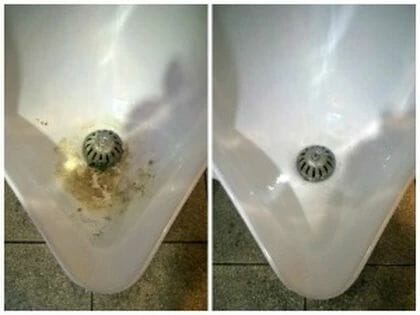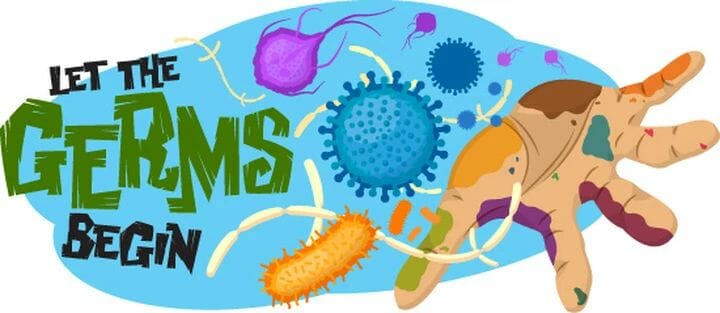Have you ever walked into a public restroom and cringed at the smell? Maybe it was a faint smell, but you knew it didn’t belong. That smell is a result of urine and feces particles accumulating throughout the restroom to create an unsanitary environment. According to Dr. Charles Gerba, Ph. D. and professor at the University of Arizona, “bathrooms are hotbeds of bacteria and viruses that occur in infected people’s waste.” If public restrooms are not sanitized and disinfected properly, the following viruses can be found:
1. Norovirus

Unfortunately, Norovirus doesn’t respond to antibiotics, but the virus should go away within two days if proper measures are taken. Dehydration is common with this virus as it drains the body of fluids. Drink water and sports drinks to re-hydrate and replenish lost electrolytes.
2. Salmonella

Symptoms such as diarrhea, vomiting, stomach pain, fever, and headache can occur as quickly as 8 hours after getting the virus. Symptoms can last anywhere between 4 to 7 days. Fortunately, Salmonella can be treated with antibiotics, but is only prescribed in severe cases. Staying hydrated is key.
3. Shigellosis

Symptoms are severe as they include bloody diarrhea, fever, and stomach pain. Even if symptoms are not present, feces of the infected is still contagious.
Shigellosis tends to last 5 to 7 days, but can be shortened with the use of antibiotics. Staying hydrated is important with this virus and it may be necessary to get hooked up to an IV.
4. Hepatitis A

Symptoms don’t typically show until the person has had the virus for a few weeks, but some signs include fatigue, vomiting, loss of appetite, stomach pain on the right side below the lower ribs, dark urine, and yellow skin and eyes. There’s no specific treatment for Hepatitis A, so the best thing to do is rest.
5. Influenza

Symptoms can be as mild as a runny nose, sneezing, and sore throat, but can quickly turn into high fever, aching muscles, chills and sweats, headache, fatigue and weakness, and nasal congestion. Plenty of rest usually does the trick to get over the flu.
How to Make Sure Your Public Restrooms Aren’t Contaminated

Hygiene companies, such as Enviro-Master, specialize in this type of work. We work to prevent the spread of disease in public restrooms. We accomplish this by removing the source of bacteria and disinfecting surfaces with a safe germicidal sealant that prevents bacteria from growing back on the disinfected surface.
If you want to provide a safe and healthy environment for your customers and staff, contact Enviro-Master so that we can conduct a free evaluation of your restrooms.
#Bacteria #Germs #HygieneServices


